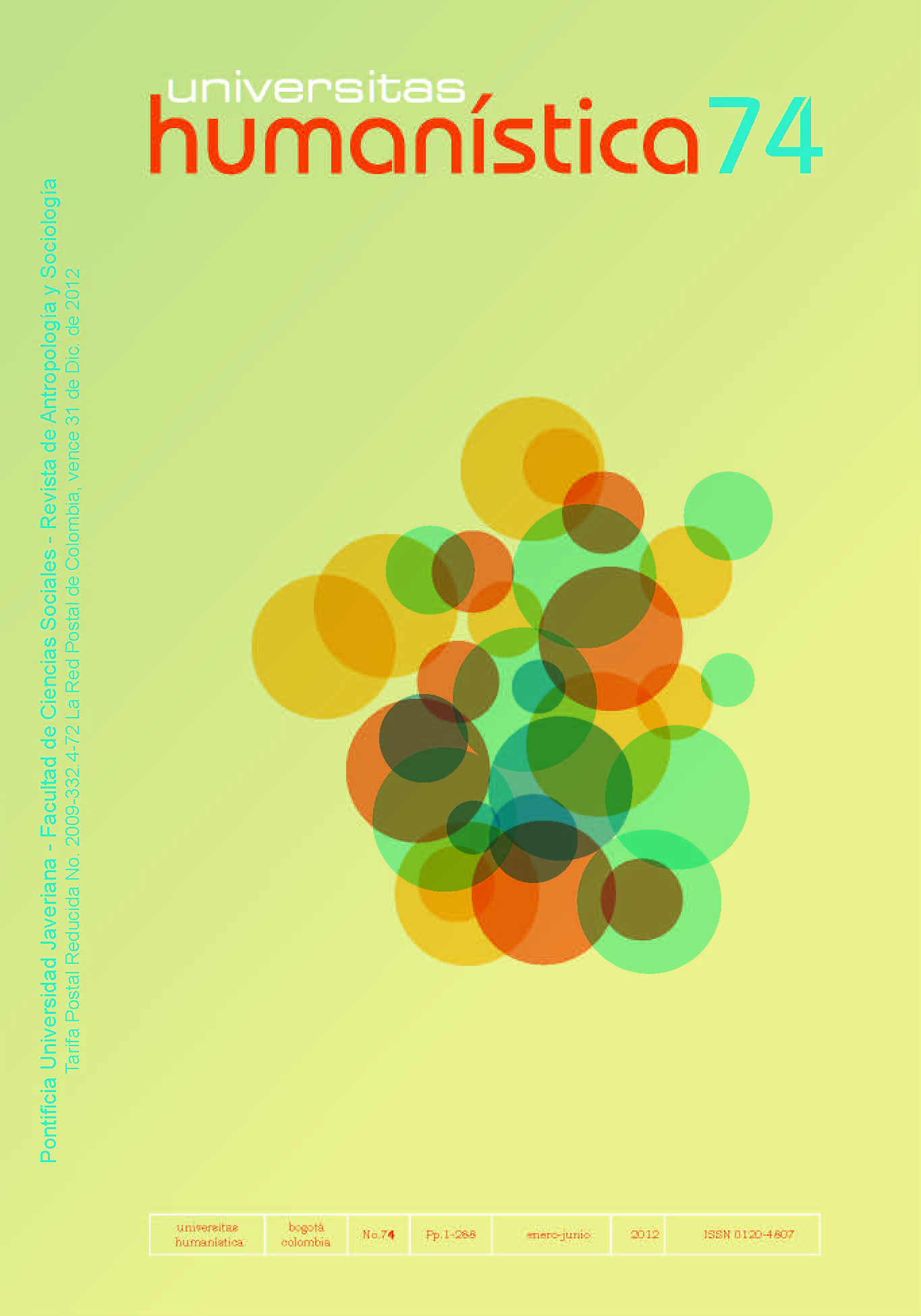Abstract
Mining activity shares the characteristics of a field, in the sense attributed to the concept by French sociologist Pierre Bourdieu. This can be observed through a case study in Marmato, in the department of Caldas. 470 years of gold-vein mining have formed a culture tied to beliefs and traditions that influence the degree of rationality in work relationships, work itself, and economic behaviour in general. It is possible that these habita are being broken by the presence of a global agent that has now entered the dispute for gold: multinational companies. This paper uses the concepts of field and habitus to study the dispute between ancestral and industrialised forms of production, and their strategies.
This journal provides immediate open access to its content on the principle that making research freely available to the public, encourages greater global exchange of knowledge.
The journal Universitas Humanística is registered under a Creative Commons Attribution 4.0 International Public License. Thus, this work may be reproduced, distributed, and publicly shared in digital format, as long as the names of the authors and Pontificia Universidad Javeriana are acknowledged. Others are allowed to quote, adapt, transform, auto-archive, republish, and create based on this material, for any purpose (even commercial ones), provided the authorship is duly acknowledged, a link to the original work is provided, and it is specified if changes have been made. Pontificia Universidad Javeriana does not hold the rights of published works and the authors are solely responsible for the contents of their works; they keep the moral, intellectual, privacy, and publicity rights.
Approving the intervention of the work (review, copy-editing, translation, layout) and the following outreach, are granted through an use license and not through an assignment of rights. This means the journal and Pontificia Universidad Javeriana cannot be held responsible for any ethical malpractice by the authors. As a consequence of the protection granted by the use license, the journal is not required to publish recantations or modify information already published, unless the errata stems from the editorial management process. Publishing contents in this journal does not generate royalties for contributors.


